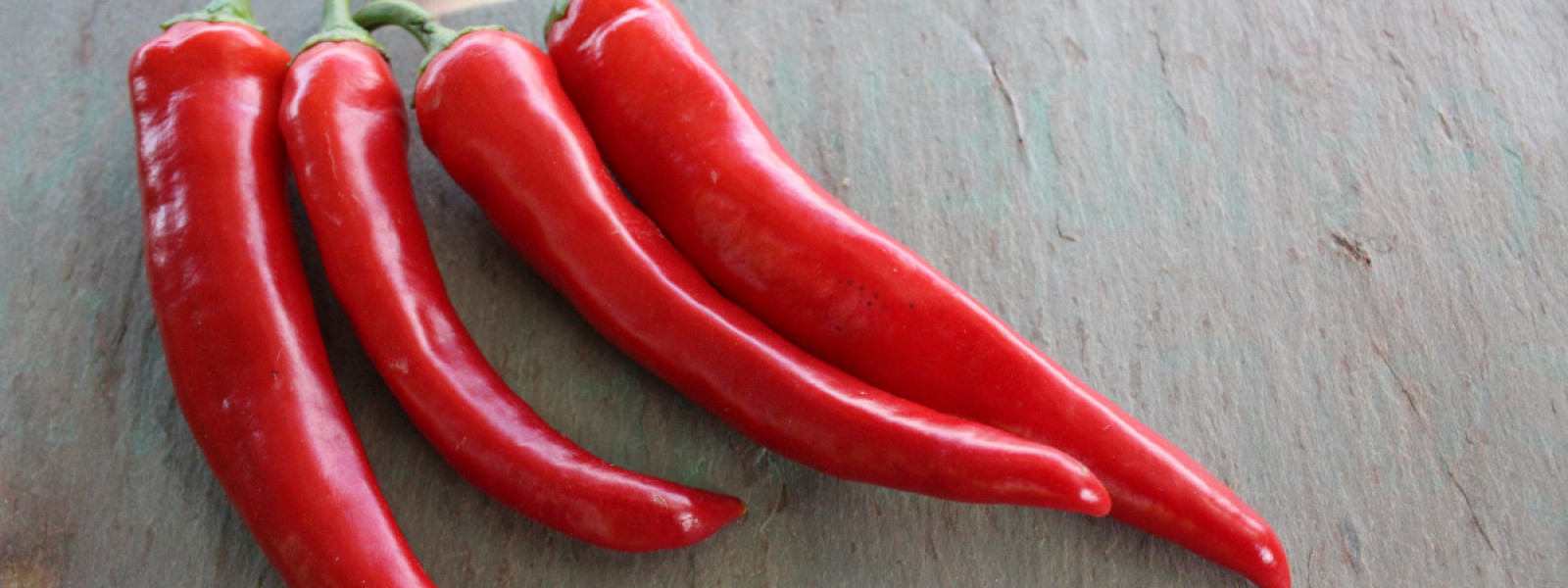Hot Peppers: All About Them
Capsaicin is the heat-producing ingredient in peppers. Most of the heat is held in the seeds and the membrane, so remove them before processing or cooking if you’re sensitive to heat. Cooking or freezing won’t affect the pepper’s intensity.
STORAGE
Store hot peppers, unwashed, in a plastic bag in the crisper drawer for 1-2 weeks. Make sure peppers are very dry; any moisture on the peppers will encourage spoiling.
ALTERNATIVE STORAGE METHODS
- Peppers freeze well when cut into strips and placed in freezer bags. If you’re sensitive to heat, you can take out the seeds at this point. Make sure to extract as much air as possible from bag before freezing.
- Throw them in the freezer whole! (They’ll be slightly softer in texture once thawed.)
- Roast, freeze on a sheet tray, then put in a freezer bag for use later on.
- String them and dry them in a warm, dry place.
- Dry them in a dehydrator. This is a quick way to dry peppers, especially if it’s humid outside. Just make sure you plug in the dehydrator outside so your house doesn’t get spicy!
- Roast, peel, and store in olive oil in a jar in the refrigerator.
CULINARY TIPS
- Make hot sauce – all you need are the peppers of your choice, vinegar, salt, and garlic!
- Roast them and add them to salsa, chili, soup, potato salad… anything you want to add a little kick to!
- Grind or crush dried peppers and use it as an all-purpose flavoring and seasoning.
Warning: Wear gloves when handling hot peppers, and avoid touching your eyes, nose, face, or any other sensitive area of your body. Wash your hands thoroughly afterward.

